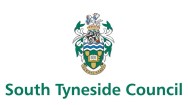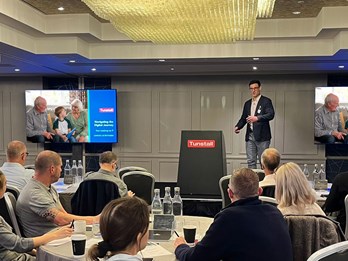Tunstall PNC8 and Service Manager functionality have improved our processes and quality within the service, and contributed significantly to us achieving Quality Standard Framework accreditation.
Craig Danks, Operations Manager, South Tyneside Council
The Challenge
Approaches to social care are evolving in order to meet the challenges of rising demand for community-based services, people wishing to remain in their own homes, and living longer with more complex support needs. These challenges are set against a backdrop of reducing budgets and the need to focus on prevention and delaying the need for formal care and support.
How has South Tyneside’s Technology and Independence Service used PNC8 and Service Manager as a platform to enable a new service delivery model which is more flexible and efficient, and delivers better outcomes for service users?
What we did
Like many local authorities in England, South Tyneside Council is reviewing the way in which it supports people who need care, including the way it delivers statutory services to people who need support to regain and retain independence. It is seeking new approaches, which will enable increased efficiency whilst delivering more holistic and outcomes-focused means of support which improve user experience and involvement.
The Council’s Technology and Independence Service plays a key role in helping people to remain safe and well at home, and the service was evaluated to examined the ways it could be redesigned to become more proactive, progressive and integrated.
PNC8 and Service Manager was chosen to provide a technology platform to enable new ways of working to be introduced, such as integrating the old visiting warden service into a regulated care response service and creating more flexible job roles. The system allowed community-based assessment to be maximised and reduced the duplication of tasks through the use of tablet-based technology in the field.
The PNC8 also allowed for better integration with the council’s computer networks, and disaster recovery is available from hand held devices, reducing the need for relocation during emergency situations.
The redesign of the service enabled a care responder service to be introduced, which now supports people living in their own homes around the borough of South Tyneside. The service includes hospital to home support for up to five days, and overnight planned and emergency response in addition to the standard emergency response to telecare alerts.
This wider focus improves the user experience by providing expert support combined with more holistic, coordinated and faster access to care and support, as well as making best use of staff time.
Assessments have a strengths and asset-based approach through an in-house expert assessor, encouraging people to retain responsibility for their own health and wellbeing, supported by their friends, family and communities.
As well as helping people living independently at home, the Technology and Independence Service works with Extra Care and Independent Supported Living Schemes, helping them to use technology to improve independence and safety, and allowing greater flexibility of support.
The new approach, along with hospital to home service, is helping to prevent delayed transfers of care. Responders also signpost to other services, such as the Falls Team, Safeguarding and Fire Services where they identify need.
In South Tyneside, we remain committed to supporting our residents with the right support, at the right time, in the right place. These challenging times require a fresh approach and new thinking, and our focus is on early intervention and prevention, improving access to personalised services and support whilst maximising the user experience. The Technology and Independence Service plays a key role in helping us to achieve this.
Councillor Tracey Dixon, Lead Member for Independence and Wellbeing, South Tyneside Council
Results
The new service structure is the platform on which The Technology and Independence Service will build its future digital offer, and is on target to deliver a better experience for people who require support, giving them greater control of their lives and wellbeing. The next steps of development include the introduction of more digital-based technologies and a greater focus on sensor based approaches, which maximise support at times of need and allow greater flexibility for users and their families to take control.
The introduction of the new structure is on target to deliver the required full year savings. By choosing PNC as a foundation for delivering the service, as well as creating efficiencies and increasing capacity, the service is prepared for the digital future. PNC has supported staff roles to become more flexible, creating maximum capacity and productivity.
The new service model is delivering a wide range of benefits:
-
Since the introduction of the new service structure, staff are multi-skilled and can therefore proactively visit people with identified needs, rather than just responding to crisis.
-
Because PNC enables staff to update records in the field, all information is always up to date, supporting better decision making with real time information. It also means staff don’t have to return to the office to complete administration, freeing up time for other tasks.
-
Assisted workflow gives operators prompts on how to manage calls, helping them to work efficiently and consistently, improving the service user experience.
-
PNC’s stock management functionality makes it easy to assign equipment to individuals, and see at a glance what equipment each individual is using.
-
PNC can support digital technologies and is designed to enable interoperability; traditional telecare solutions such as home units and pendants will be used in combination with newer technology such as voice activated devices (e.g. Amazon Echo) and sensor-based systems which identify changes in normal patterns of behaviour.
This enables service users to easily access help in an emergency, but also do more for themselves, and allows families and care staff to offer support at an early stage if the system indicates it may be required. -
PNC’s remote working capability also means that should the monitoring centre encounter operational difficulty, staff can manage calls remotely, rather than all staff needing to decant to another location to ensure business continuity.
Download the full case study and read more about how South Tyneside's Technology and Independence Service are also using Tunstall's Lifeline Smart Hub




